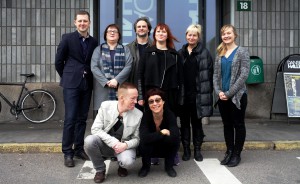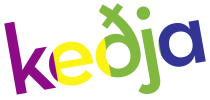Sustainable strategies for the Nordic-Baltic dance field
Spring 2015:
The Sustainability Report of Recommendations
The outcome of the work of the Sustainability Think Tank is a report with recommendations for a sustainable dance field. The report addresses all levels of decision making – local, national and international – as well as the dance community itself, being aware that the conditions for dance vary among the different countries.
The keðja Sustainability Think Tank invites cultural actors, policy makers, organizations, artists and other dance professionals to make use of the Sustainability Report in their work and in advocacy, highlighting those recommendations that best meets their specific needs and conditions.
Link to the online publication (Issuu):
The keðja Sustainability Think Tank Report: Recommendations for a Sustainable Nordic and Baltic Dance Field
Download the publication here: kedja Sustainability Think Tank Report 2015 (pdf)
————————————————————————————————————————–
Description of the Sustainability Think Tank aactivities
What can sustainability mean in contemporary dance? How do we want to define sustainability? Inadequate funding schemes, short-term solutions, short-lived productions – how should the dance field be developed in a more sustainable manner?
The keðja Sustainability Think Tank addressed these key issues. During 2012-2014 the Think Tank group gathered to define, discuss and debate better operational models for the Nordic and Baltic dance field. The main aim was to provide concrete suggestions for increased sustainability.
—
Other material related to the Sustainability Think Tank:
Sustainability Think Tank END REPORT 2012-2014
Sustainability Think Tank 3rd Meeting REPORT Helsinki 2013
Sustainability Think Tank 2nd Meeting REPORT Lund 2013
Sustainability Think Tank 1st Meeting REPORT Tallinn 2012
Please scroll down for an overview of the work process and the participants.
* * *
The work process:
Kick-off at keðjaTallinn, September 2012:
The aim of the first meeting was to discuss and define the topic and set the overall framework. As an outcome, the concept and its meaning within dance was articulated through five principal themes, focusing on the life of productions, communicating value, artistic practices, the funding and support of dance as well as the structures in the dance field. The 2-day kick-off consisted of roundtable sessions followed by a public session on Thursday 20th, during which the key issues were discussed and the Encounter participants invited to contribute.
2nd meeting in Lund, April 2013:
The aim of the second meeting was to sharpen and further elaborate the key themes with consideration for the wider impact of the art form and its reception in relationship to its environments. Focus was put on the questions of sustainable mobility, sustainable funding and sustainable structures in the dance field. It was decided that the Think Tank would produce a final document containing concrete suggestions and recommendations for a sustainable Nordic-Baltic dance field.
Workshop at keðjaKlaipeda, June 2013:
The Think Tank held an open discussion for dance artists to discuss the sustainability of artistic practices and working preconditions at the keðjaKlaipeda Encounter. Issues such as dance education, survival skills and the relationship with the society were brought up. The workshop was hosted by the Think Tank members Sari Palmgren and Sanna Rekola.
3rd meeting in Helsinki, September 2013:
The main agenda for the third meeting was to dig into two core areas of sustainability in the dance field: sustainable strategies for the dance community and sustainable funding on a national, a Nordic-Baltic and an EU level. A great deal of focus was also put on the envisioned final document, which is going to be finalized in 2014.
4th meeting in Copenhagen, March 2014:
The aim of the fourth and final meeting was to tie up loose ends and make decisions regarding both the form, the content and the schedule of the final document. Different key issues and unsettled questions were scrutinized during the meeting and decided upon.
Workshops and discussions at keðjaMariehamn, August 2014:
The Sustainability Think Tank presented its work in many ways in the Encounter programme. Sari Palmgren held the same workshop on the sustainability of artistic practices and working preconditions (“How do I make my art more sustainable”) as in Klaipeda in 2013. The issues that came up were sustainable art works and what they require in terms of time and resources, the concepts of ecosystem and the compost and responsibility. Torsten Schenlaer held a workshop that focused on sharing knowledge and the possibilities of composting in the dance field (“Recycling artistic knowledge”). The key outcomes of the Think Tank were presented in the opening seminar (“Sustaining Our Community”). Also a panel discussion on sustainable funding structures, that based on the ideas of the Sustainability Think Tank, was held (“Sustainable funding – is there such a thing?”).
Think Tank group:
TOVE BRATTEN
Director of Performing Arts Hub Norway
Norway
RIITTA HEINÄMAA
Director of the Finnish Institute in Estonia
Estonia/Finland
AUDRONIS IMBRASAS
Director of Lithuanian Dance Information Centre
Lithuania
SARI PALMGREN
Freelance choreographer and dancer
Finland
SANNA REKOLA
Director of Dance Info Finland
Finland
TORSTEN SCHENLAER
Head of the Cultural Department of the city of Lund
Sweden
RAGNAR SIIL
Chair of the European Union Expert Group on Cultural and Creative Industries
(former Undersecretary for fine arts at the Estonian Ministry of Culture)
Estonia
coordination by:
KATARINA LINDHOLM
Project Manager of Dance Info Finland
Finland

